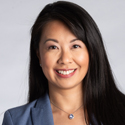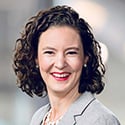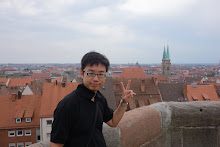2023 Board Election Results
The Society of Actuaries (SOA) announces the results of the 2023 Board of Directors Elections. Five Board members and one President-Elect and Vice-Chair have been elected to serve starting with the 2023–2024 term. Thank you to all SOA members who voted in the 2023 election.
Board Results
We welcome the elected members of the SOA Board of Directors.
Sherry Chan, FSA 2016, EA 2017, MAAA 2008, FCA 2002
Chief Strategy Officer
Atidot
New York, NY
Gabriela Dieguez, FSA 2010, MAAA 2007
Equity Principal & Consulting Actuary
Milliman, Inc.
New York, NY
Jackie Lee, FSA 2009, MAAA 2007
Vice President & Principal
Lewis & Ellis, Inc.
Plano, TX
Daniel Pribe, FSA 2001, MAAA 1995
Vice President and Chief Actuary
Lumeris
St. Louis, MO
Ying Zhao, FSA 2006, MAAA 2005
Associate Partner
McKinsey & Company
Chicago, IL
The newly elected Board members will join the continuing Board members Karen Burnett, FSA, FCIA; Ian Duncan, FSA, FIA, FCIA, MAAA, FCA; Sara Goldberg, FSA, MAAA; Dave Ingram, FSA, CERA, MAAA; Lisa Kuklinski, FSA, MAAA; Melody Prangley, FSA, MAAA, EA, FCA; Kelly Rabin, FSA, MAAA, CFA; Mary Beth Ramsay, FSA, MAAA; Si Xie, FSA, CERA, FCIA; and Mercy Yan, FSA, FCIA, MAAA.
The SOA thanks the members who will complete their terms with the SOA Board following the October Board Meeting. The members rolling off are past president Jennifer L. Gillespie, FSA, MAAA; Arpita Das, FSA; Josée Deroy, FSA, MAAA, CFA; and Nazir Valani, FSA, FCIA, MAAA.
President-Elect and Vice-Chair Results
Amanda Hug, FSA 2013, MAAA 2013
Director
Willis Towers Watson (WTW)
New York, NY
Congratulations to Amanda Hug, FSA, MAAA, who will serve as the 2023–2024 SOA President-Elect and Vice-Chair. Amanda will finish her term as an SOA Elected Board Member to become the 76th president. Some of her other organizational involvements include currently chairing the Governance and Policy Committee and formerly chairing the Taskforce for Evolving the FSA Pathway, as well as currently being Board Liaison for the Diversity, Equity & Inclusion Committee, and formerly with the Research Executive Committee, Sections/Communities, Young Professional Advisory Committee and Professional Development Committee.
During her term, Hug will lead the SOA Board of Directors. Along with her fellow Board members, Hug will vote on important strategic decisions to ensure they will fit within the SOA Long-Term Growth Strategy and Strategic Plan.
For the 2023–2024 term starting in October, Amanda Hug, FSA, MAAA, will serve as the President-Elect and Vice-Chair, joining Timothy Rozar, FSA, MAAA, CERA, who will serve as SOA President for the 2023–2024 term. John W. Robinson, FSA, MAAA, FCA, will serve as past president for the 2023–2024 term.
Voting Process
Vote Totals for President-Elect and Vice-Chair Candidates
Candidate Name | Votes | Percentages |
Amanda Hug, FSA 2013, MAAA 2013 (Endorsed) | 2,811 | 54.7% |
Dave Dillon, FSA 2004, MAAA 2002 (Endorsed) | 2,328 | 45.3% |
Total Valid Ballots: 5,139
Total Unexercised: 157
Total Ballots Cast: 5,296
*In 2023 there was no preferential vote as there were only two candidates for the President-Elect and Vice-Chair position.
Past Three Years Vote Counts:
Year | Count | Percent of Eligible Voters |
2023 | 5,489 | 18.99% |
2022 | 5,265 | 19.25% |
2021* | 4,719 | 18.32% |
*The 2021 election cycle took place over two business weeks instead of three as in current and previous elections.









